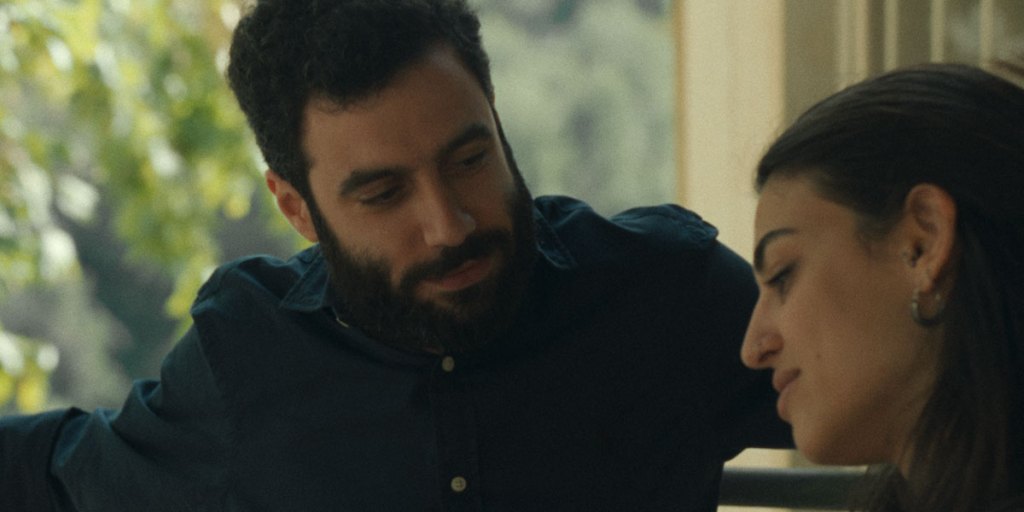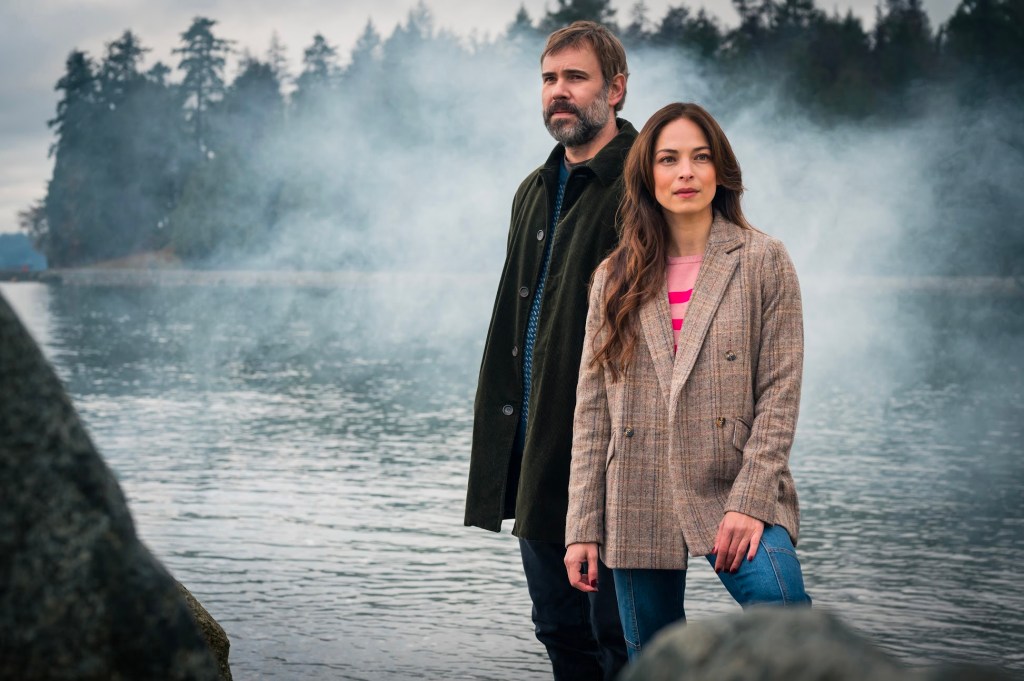If there is a cinematic equivalent of the theatre of cruelty, it must be the reigning spirit of Austrian cinema. Films by Michael Haneke, Ulrich Seidl, Veronika Franz and Jessica Hausner may be very different from each other, but are similarly unflinching as they roam threatening spaces, find the sinister in the everyday and delve into the darkness of human hearts. Johanna Moder’s previous films didn’t share that sensibility, but she shows her Austrian colors in Mother’s Baby, the most viscerally ghastly evocation of new parenthood we’ve seen since Eraserhead.
Not exactly a horror film, Mother’s Baby is nevertheless shot through with horror elements: a weird baby, an isolated woman being gaslit into thinking she’s crazy, a demonic doctor and his horde of witchy nurses working in a strangely unregulated institution straight out of David Cronenberg’s playbook. Over everything hovers the gruesome mystery of birth, that unnerving manifestation of female destiny by which a small person is formed within a larger one and bursts out like the alien in Alien.
Julia (Marie Leuenberger) is a rising orchestral conductor; her partner Georg (Hans Low) has a job that requires him to go to project sites, but is important only because he is bringing home the bacon while Julia gestates, delivers and mothers the baby that, at 40, she had feared she might never have. In a swift series of scenes, we see this affectionate couple visit an astonishingly well-appointed fertility clinic on a mountaintop. The sepulchral Dr Vilfort — a deliciously villainous turn by Claes Bang — assures them that with his modern methods, they will conceive. They do. They prepare for the happy day.
Births are often painful, complicated and teeter on the edge of tragedy; the Austrian factor here is that we are not spared any of that experience. Not that we are at the bloody end of business: Leuenberger, a powerfully physical presence on screen, conveys pain and terror so effectively we feel it in our guts. Then the baby is rushed out, supposedly because the cord was around his neck and he was deprived of oxygen. For days, they are not allowed to see him.
You can tell new parents anything, after all: what do they know? This doubt, fear and uncertainty is the film’s motor, constantly rumbling in the background; rather than exploit the possibilities of body horror, Moder plays on the almost universal fear of new parents that they won’t be good enough. That fear, which everyone understands, eats into the mind like a worm.
When the baby arrives, he barely makes a sound. He just sleeps, his eyes half-open, strangely slug-like; in fact, he looks like the axolotl Dr Vilfort has in a tank in his surgery. Vilfort is fascinated by axolotls. They even feature on the clinic’s website, where he enthuses about their ability to lose limbs and grow new ones. Which, of course, is a perfectly reasonable thing to find fascinating. Nothing odd about that.
Again, Moder’s control here is formidable, reining in the potential for full-blown body horror to instead give out mere hints of things not quite right. Julia can’t properly give voice to her ability to bond with the supposed flesh of her flesh. She wanted this child so much. Maybe it isn’t hers at all. Why can’t she see the birth records? Georg worries about her, then withdraws from her. Her doctor prescribes tranquillisers. And then, right there in this doctor’s surgery, is Dr Vilfort, standing too close, telling her they need to treat her post-natal depression.
Together, they have designated her a bad mother. The gaslighting process is subtle, incremental, difficult to pin down before they slip away, becoming part of an imposed narrative in which she is not mad exactly, but terminally inadequate. As the last act surges into sci-fi territory, we are so firmly enmeshed in a realistic psychological drama that the gruesome goings-on at Dr. Vilfort’s establishment — which we have been anticipating, in some form, since we first encountered his glowering presence — feel real too.
It is at this point that you may realise you have been gripping the arms of the chair and gritting your teeth for nearly two hours. Is that healthy? At the beginning of the film, we see Georg and Julia laughing and screaming their lungs out on a carnival ride. Never again, they gasp at each other when they get off, clearly having had the time of their lives. This film is a bit like that. Petrifying, but you’re glad you did it.
Title: Mother’s Baby
Festival: Berlin (Competition)
Director: Johanna Moder
Screenwriters: Johanna Moder, Arne Kohlweyer
Cast: Marie Leuenberger, Hans Löw, Claes Bang, Julia Franz Richter
Sales agent: The Match Factory
Running time: 1 hr 47 mins
.



